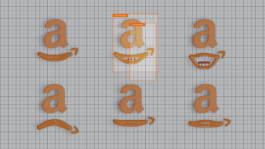Dreams of Automation

‘Dreams of Automation’ worries not so much about the existence of artificial intelligence, but rather about how much human intelligence is sacrificed (and how much human labour is exploited) for the belief in an ‘automated future’ that may never make it into the present: Instead of helping artificial intelligence to advance, I paid workers on Amazon’s platform ‘Mechanical Turk’ to reveal their working conditions in form of videos and voice recordings. Hence, online workers are hired to generate a film about online work—and to talk about the absence of ethics, fair pay, and unions.
The Western world once promoted the belief that advanced technology would lead us into an automated future, in which humans could enjoy themselves for most of the day and be served cocktails by robots once they finished their four-hour working day. Instead, we find ourselves in a world in which more and more human labour is needed to enable the supposed advancement of technology. Hence, instead of robots working for humans, humans increasingly tend to work for robots. Artificial intelligence is not so intelligent, after all, one might say. But this would also entail that humans are not so intelligent, since technology itself is ultimately a product of human thought.
A prime example for the lack of human intelligence can be found in Amazon’s ‘Mechanical Turk,’ which was created to ‘automate the un-automatable,’ according to one of the platform’s marketing slogans. What this means is that humans perform tasks that should be executed by robots, but for which robots are not smart enough: Identifying images, transcribing audio and simulating ‘natural’ conversations are just some of the tasks that humans are requested to perform on this platform.


So far, so good: These requests might actually help artificial intelligence become less stupid. The problem is not necessarily that humans work for robots, but that humans are being treated like robots. ‘Mechanical Turk’ provides none of the infrastructures which were established a long ago to create humane working conditions: There is no minimum wage, no maximum amount of working hours, almost no way to file a complaint against one’s boss and it is practically impossible to get in touch and organise with one’s co-workers.
This project aims to expose the working conditions on ‘Mechanical Turk’ by infiltrating the platform with tasks that generate the content for the film itself. Instead of helping artificial intelligence, workers are creating a film about their experiences: They record videos of their workplace, speak about their motivation (or need) for working on the platform, reveal their earnings and talk about the ethics of working on ‘Mechanical Turk.’ In addition, this material is contrasted with found footage regarding Amazon’s platform, showing the mismatch between what workers experience on the platform—and how it is being promoted online. Ultimately, this film will most likely not make robots serve cocktails to humans, but hopefully evoke thoughts about whose intelligence we should worry about.Messages on dating apps, personalised advertisements on social media, recipes found on websites, a recap of my taste in music over the year, and emails that were sent to me serve as a somewhat insufficient overview which questions self-authenticity and representation. The script of the video solely stems from a patchwork of screenshots which unintentionally creates a personal narrative, allowing the viewer to empathise—despite the uncanny appearance of the character which guides viewers through a web of digitalised information.



